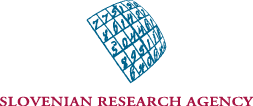Recombinant probiotics as bio-alternative antimicrobial approach against Clostridioides difficile
Code:
J4-3096
Range:
01. October 2021 - 30. September 2024
Range:
0,55 FTE
Leader:
Borut Štrukelj
Field:
4.06 Biotehniške vede
Abstract:
Clostridioides difficile infections represent a growing and serious health threat, particularly for the elderly and immune-compromised patients in the hospital setting. C. difficile causes a spectrum of pathological conditions ranging from mild self-limiting diarrhea, to serious diarrhea, pseudomembraneous colitis and potentially lethal fulminant colitis. C. difficile has caused approximately 780,000 infections and 49,000 deaths every year in the United States and Europe and has incurred the annual health costs of $800 million in the USA and €3,000 million in Europe. C. difficile infection is usually associated with the use of antibiotics that causes imbalance in microbiota composition and clears the niche for C. difficile. Major virulence factors of C. difficile are its two toxins, TcdA and TcdB that are responsible for the intestinal symptoms. The use of antibiotics for the treatment of C. difficile infection is less effective due to its spore-forming ability and often leads to the relapse of the disease. Alternative treatment approaches are being investigated and clinically used, such as fecal microbiota transfer that aims at normalization of microbiota composition; however, this bears inherent risks due to the problems with standardization.
There is therefore a clear need for a new antimicrobial approach against C. difficile that does not affect the microbiota, but rather exploits it for its advantage. We aim at the development of new preventive or supportive treatment of C. difficile infections based on recombinant probiotics. The novelty of this approach is the combination of the vibrant field of microbial therapy of C. difficile infections with novel tools available in the arsenal of synthetic biology and genetic engineering. Engineering of probiotics combines the benefits of intrinsic probiotic activity with engineered anti-C. difficile activity. To achieve this aim, we propose the development, characterization and efficacy testing of recombinant Lactococcus lactis that will secrete specific ligands against C. difficile toxins TcdA and TcdB (causing their neutralization) and C. difficile-specific phage endolysins (causing lysis of C. difficile cells).
Phases:
The project activities are organized into four tasks. First task will focus on the development of binders of toxins TcdA and TcdB by screening ScFV phage display libraries and considering TcdA- and TcdB-neutralizing DARPins and affimers. Second task will focus on identification, selection and expression of phage endolysisns from C. difficile. Within the third task, a set of multifunctional recombinant L. lactis variants with the ability to bind toxins and secrete endolysins will be engineered. The fourth task, the functionality of toxin binders, endolysins and variants of L. lactis will be assessed in different serotypes of C. difficile.
Bibliographical references, arising directly from the implementation of the project:
https://cris.cobiss.net/ecris/si/en/project/18748
Financed by:

Research projects (co)funded by the Slovenian Research Agency.
Changed: 14. March 2022